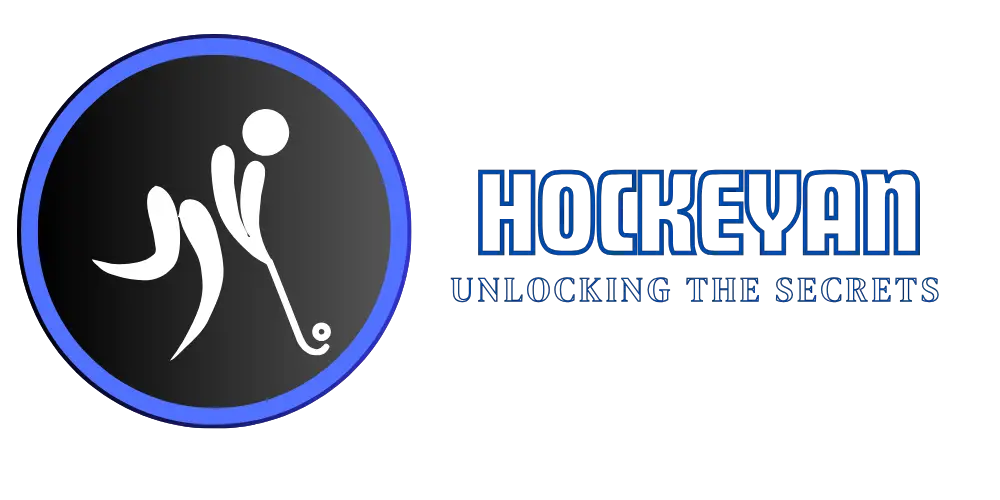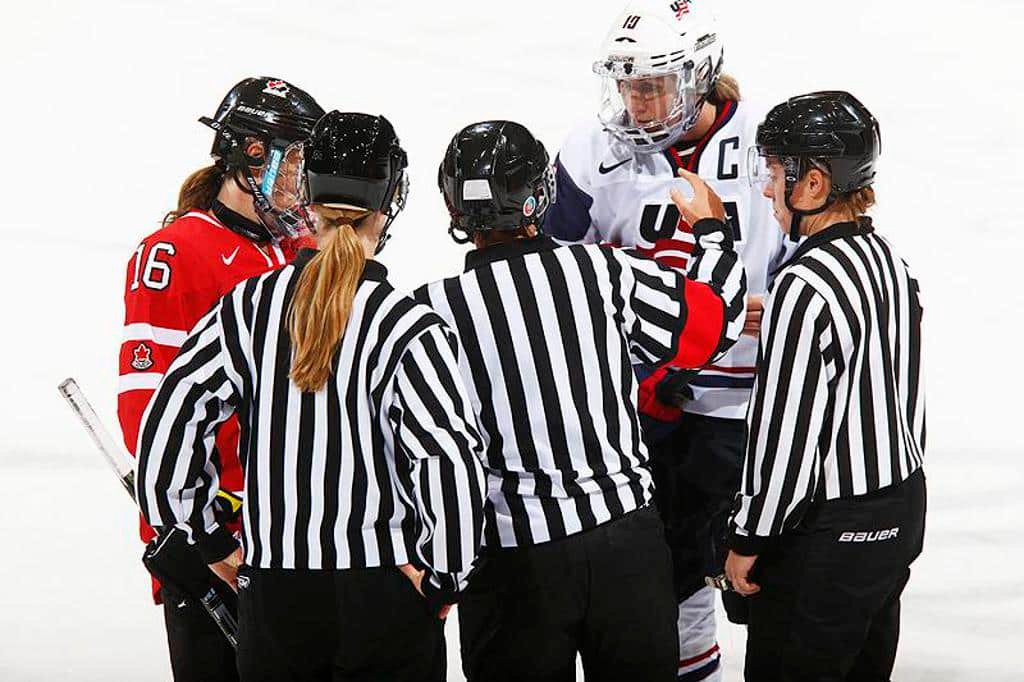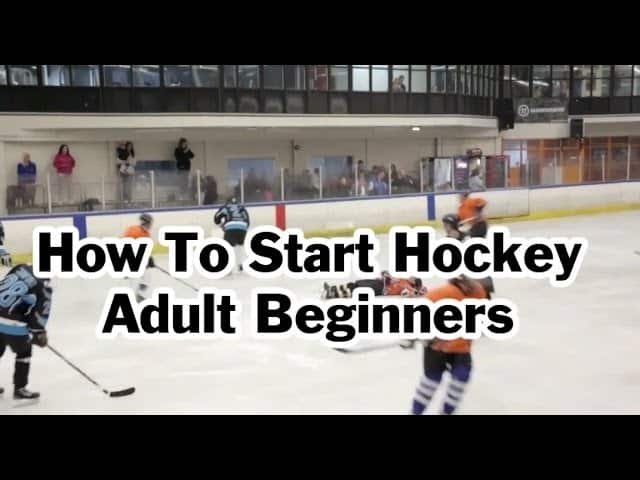Becoming a youth hockey referee can be a rewarding experience. It allows you to stay involved in the sport and help young athletes develop.
Youth hockey referees play a crucial role in ensuring fair play and safety. They make important decisions on the ice, guiding the game flow and enforcing rules. Whether you are an experienced player or a passionate fan, becoming a referee offers a new perspective on the game.
It involves learning the rules, attending training sessions, and gaining certification. This journey can be challenging but also exciting and fulfilling. If you love hockey and want to contribute to the sport, this guide will show you the steps to take and what to expect. Let’s dive into the world of youth hockey officiating.

Credit: www.usahockey.com
Introduction To Youth Hockey Refereeing
Becoming a youth hockey referee can be a rewarding experience. You play a key role in ensuring fair play and teaching young athletes about sportsmanship. Referees help keep the game safe and enjoyable for everyone involved. If you love hockey and want to contribute positively to the sport, refereeing might be the perfect fit for you.
Importance Of Referees
Referees are essential for any organized sport. In youth hockey, they ensure the game is played according to the rules. They make decisions that keep the game fair and safe.
Without referees, games would lack structure and could lead to chaos. Referees teach young players the importance of following rules and respecting authority. This helps in their overall development, both on and off the ice.
| Role | Responsibility |
|---|---|
| Enforcer | Ensure rules are followed |
| Mediator | Resolve conflicts |
| Educator | Teach players about fair play |
Skills And Attributes Needed
To become a successful youth hockey referee, certain skills and attributes are needed. Here are some key qualities:
- Knowledge of the Game: Understand the rules and strategies of hockey.
- Decision-Making: Make quick and fair decisions under pressure.
- Communication: Clearly explain decisions to players, coaches, and parents.
- Confidence: Maintain authority and control during the game.
- Physical Fitness: Keep up with the fast pace of the game.
Developing these skills will help you become a respected referee. Continuous learning and experience on the ice will make you better over time.

Credit: www.refrsports.com
Getting Started
Becoming a youth hockey referee can be a rewarding experience. It allows you to stay connected to the sport and help young players grow. But, where do you begin? This section will guide you through the first steps.
Basic Requirements
First, you need to meet some basic requirements. Most leagues require referees to be at least 14 years old. You should have a good understanding of hockey rules. Physical fitness is important too. Refereeing can be demanding, so being in good shape helps.
Finding Referee Courses
Next, find a referee course. Many hockey associations offer these courses. You can check with local hockey clubs or associations. Some courses may be available online. These courses teach you the rules and how to apply them. They also cover safety and positioning on the ice.
After completing the course, you may need to pass a test. This test ensures you understand the rules. Once you pass, you can start refereeing games. Start with youth games to gain experience. Over time, you can move up to higher levels.
Training And Certification
Becoming a youth hockey referee is a rewarding journey. The first step is training and certification. This ensures you have the skills and knowledge needed. Proper training helps maintain the integrity of the game and ensures player safety.
Certification Programs
Several organizations offer certification programs for youth hockey referees. The most recognized one is USA Hockey. They provide a structured program with various levels of certification. Each level requires passing a test and attending seminars.
The table below outlines the levels of certification:
| Level | Requirements | Description |
|---|---|---|
| Level 1 | Pass basic test | Entry-level, for new referees |
| Level 2 | Pass intermediate test | For referees with some experience |
| Level 3 | Pass advanced test | For experienced referees |
| Level 4 | Pass expert test | For elite referees |
Practical Training Sessions
Training does not stop at certification. Practical training sessions are crucial. These sessions allow you to practice on-ice scenarios. They help you understand the pace of the game and make quick decisions. Referees often work with mentors during these sessions.
Key aspects of practical training include:
- Game positioning
- Penalty assessment
- Communication with players and coaches
Mentorship is a valuable part of practical training. Experienced referees provide feedback and guidance. This helps you refine your skills and build confidence.
Gaining Experience
Becoming a skilled youth hockey referee involves more than just understanding the rules. Practical experience is crucial. Engaging in various activities helps you grow as a referee and build confidence on the ice. Below are some effective ways to gain experience.
Volunteering Opportunities
Start by exploring local volunteering opportunities. Many youth hockey leagues welcome volunteer referees, especially for practice games and lower-level matches. Volunteering is a great way to get your foot in the door and learn the basics without the pressure of a formal game.
Here are some places to consider for volunteering:
- Community Centers
- Local Schools
- Hockey Camps
Volunteering allows you to network with other referees and coaches. You can get valuable feedback and tips to improve your skills.
Joining Local Leagues
Joining local leagues is another excellent way to gain experience. Many leagues offer beginner referee positions, which are perfect for those just starting out. Contact your local youth hockey league to inquire about referee openings.
Here are some steps to follow:
- Research local leagues.
- Attend their meetings and events.
- Express your interest in becoming a referee.
Being part of a local league offers numerous benefits. You get to officiate actual games, which helps you build confidence and understand game dynamics better. Additionally, you can learn from experienced referees who can mentor you.
Consider both volunteering and joining local leagues to maximize your learning opportunities. With dedication and practice, you will become an effective and respected youth hockey referee.
Tips For Success
Becoming a youth hockey referee requires dedication, knowledge, and the ability to manage different game situations. It’s essential to have a strong foundation to succeed. Here are some valuable tips for success.
Handling Pressure
Handling pressure is crucial for any referee. Hockey games can get intense, and you need to stay calm. Maintain your focus and keep your emotions in check. Remember, players and coaches look to you for decisions.
Here are some tips to handle pressure:
- Stay composed: Take deep breaths during stressful moments.
- Be confident: Trust your training and knowledge of the rules.
- Ignore outside noise: Focus on the game, not the crowd or coaches.
Continual Learning And Improvement
Continual learning and improvement are essential for growth. Hockey rules can change, and new techniques emerge. Stay updated and enhance your skills regularly.
Consider these approaches:
- Attend workshops: Participate in training sessions to learn new methods.
- Review game tapes: Analyze your performance to identify areas for improvement.
- Seek feedback: Ask experienced referees for constructive criticism.
By focusing on these tips, you can excel as a youth hockey referee. Stay calm, be confident, and keep learning.

Credit: www.refrsports.com
Frequently Asked Questions
How Do I Start As A Youth Hockey Referee?
To start, take a referee training course. Check your local hockey association for details.
What Qualifications Do I Need To Referee Youth Hockey?
You need a referee certification. This usually involves a course and passing an exam.
How Old Do You Need To Be To Referee Hockey?
Most places require you to be at least 14 years old. Check local rules.
What Equipment Does A Youth Hockey Referee Need?
Referees need skates, a whistle, a helmet, and a striped jersey. Protective gear is also recommended.
How Much Do Youth Hockey Referees Get Paid?
Pay varies by location and level. Typically, it ranges from $20 to $50 per game.
What Skills Are Needed To Be A Good Hockey Referee?
Important skills include good skating, knowledge of the rules, and the ability to make quick decisions.
How Can I Improve My Hockey Refereeing Skills?
Practice regularly. Attend workshops and watch experienced referees to learn more.
Are There Different Levels Of Hockey Referees?
Yes, there are multiple levels, from beginner to advanced. Higher levels require more experience and training.
How Do I Handle Conflicts During A Game?
Stay calm. Use clear communication. Apply the rules fairly to resolve conflicts.
Conclusion
Becoming a youth hockey referee is a rewarding journey. Start with proper training. Gain experience through local games. Always strive to improve your skills. Stay updated with the latest rules. Build strong communication with players and coaches. Your role is crucial for fair play.
Enjoy the excitement of the sport. Embrace the responsibility and have fun. The community will appreciate your dedication. Become a role model for young athletes.




